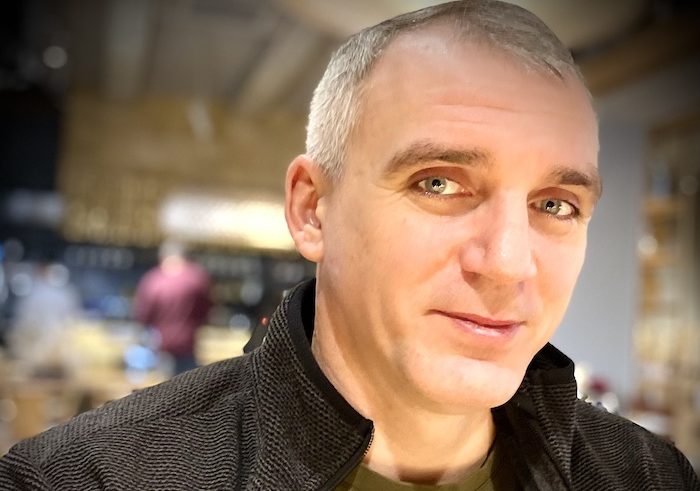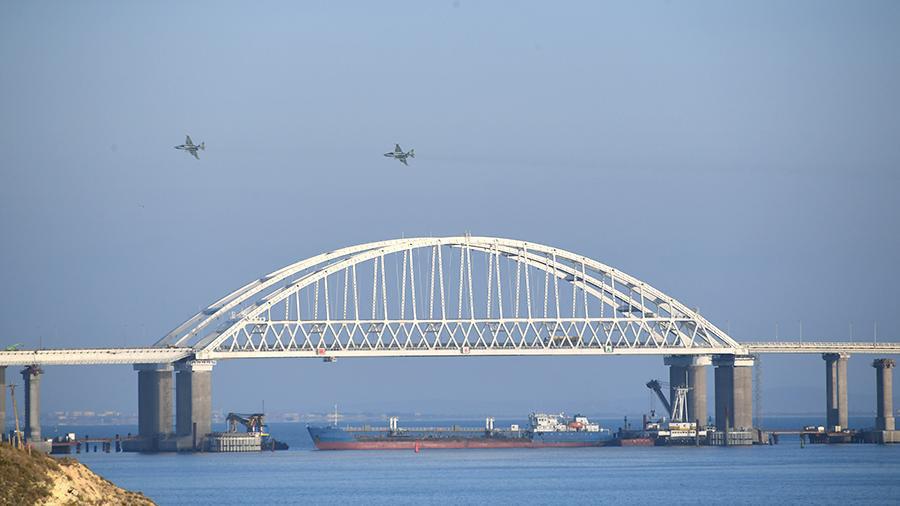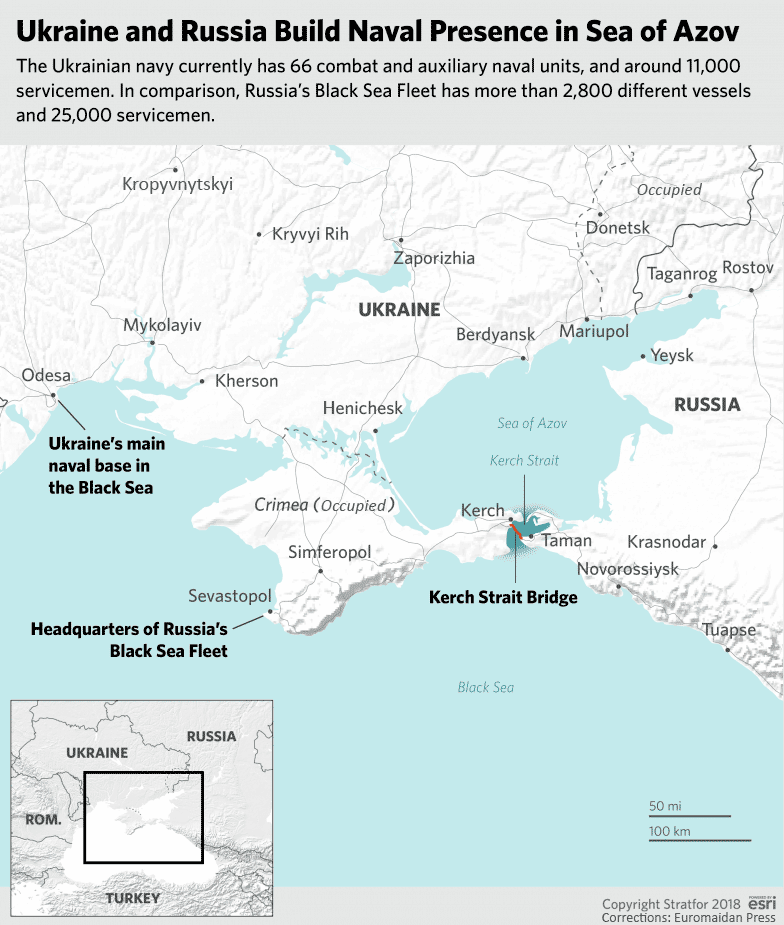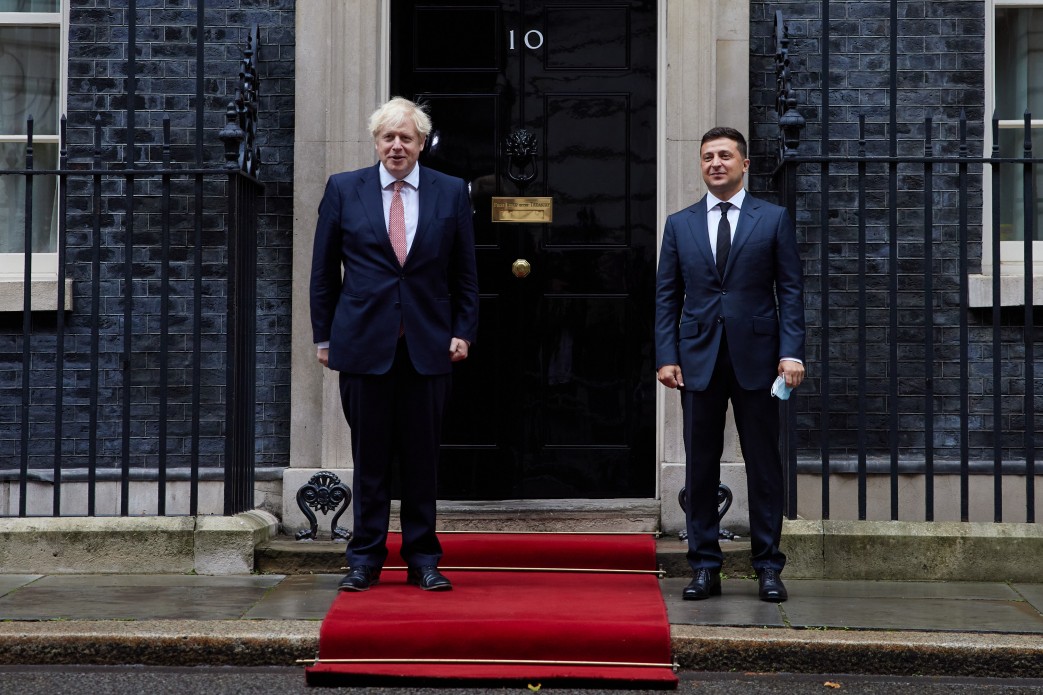For eight months, the south-Ukrainian city of Mykolaiv withstood bombardments from Russian troops that tried to reach the key port city of Odesa. Its water system is destroyed, universities were shelled, and enterprises stopped. But Mykolaiv’s spirit is unbroken, its mayor tells Euromaidan Press. The world understands that Ukrainians are totally different from Russians and that Russia is a weak country, mayor Sienkievych believes.
Mykolaiv: Strategic importance
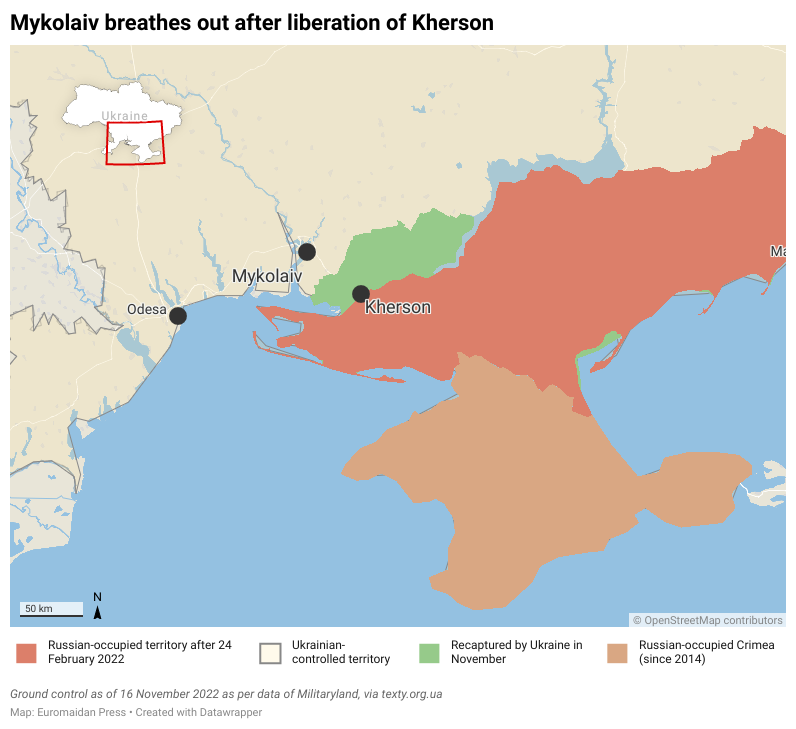
First of all, Mykolaiv is a port city. Before the war, we were the most militarized city in Ukraine. We had 11 military organizations, brigades, and, as of today, the only way for the Russian troops to reach Odesa, a major city port, is via the city of Mykolaiv as there is only one bridge in the South, the bridge over the river of Pivdennyi Buh. Another one is 200 km away.
The Russians tried to attack and surround Mykolaiv but the Ukrainian army successfully defended the city. After that, we had eight months of battles only 30 km from the city. Because of that, the Russians put MLRSs near Kherson and attacked us almost every day.
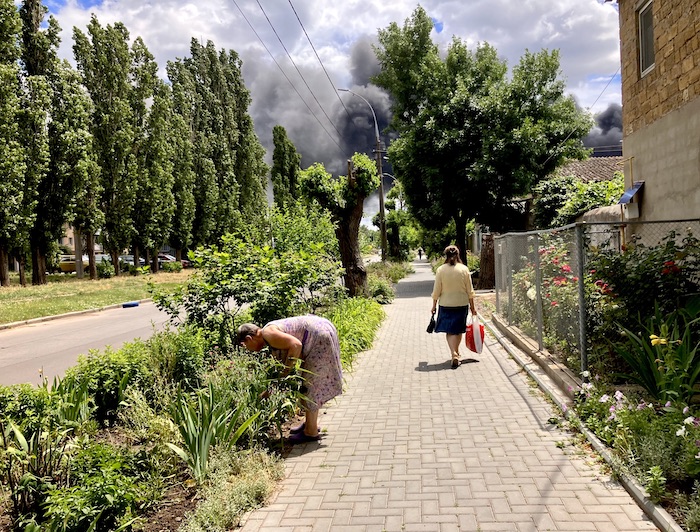
On 14 November, three days after the liberation of Kherson, we had the latest bombardment.
Seven people were killed and five floors of a residential building were destroyed. There were 20 apartments in that part of the building but, fortunately, a lot of residents had left.
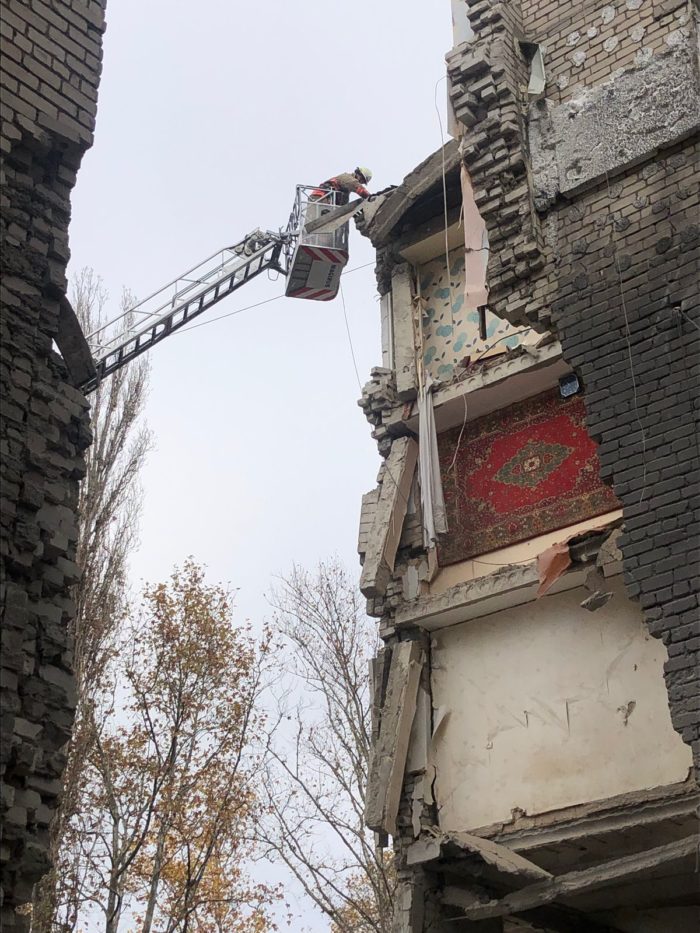
For the whole duration of the war before Kherson’s liberation [between 24 February and 11 November 2022], we had no bombardments for only 46 days. Bombardments would pause for two or three days in a row, no more.
Almost every day, I asked people to leave the city. We have about 220,000 people left out of half a million. The number of victims could have been much higher if people had not left the city. As of now, 156 were killed, and more than 700 were heavily injured.
A day after this interview, attacks on Mykolaiv resumed.
https://twitter.com/ZarinaZabrisky/status/1600788476529516544
Eight months without tap drinking water
After the liberation of Kherson, life comes back. We still don’t have drinking water because we used to take it from the Dnipro river, close to Kherson, but on April 12 the Russians destroyed 73 km of our water pipelines, a diameter of 1.4 m. It’s a big system and the Russians inflicted major damage. They put the explosives in four places along the pipeline and blew up the water supply system in order to leave the city without water.
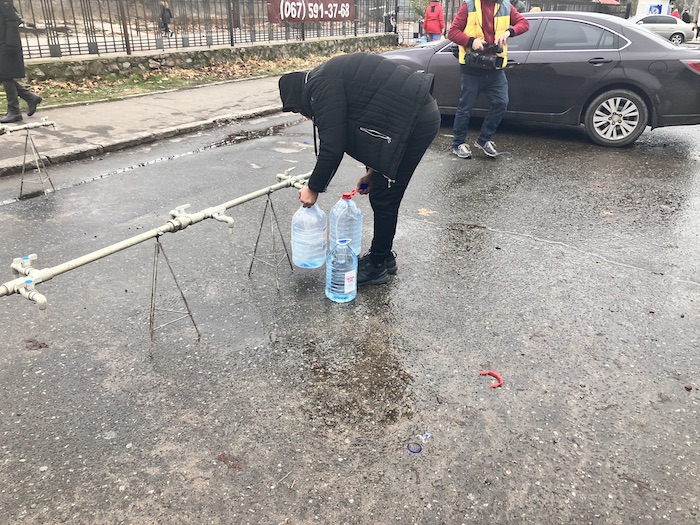
For one month, we lived without any drinking water at all. We took the water from the boreholes underground and distributed it through the city by water trucks. Later, we built a different system and we take the water from the Pivdennyi Buh river.
There is a problem, however, because our cleaning facilities were built to clean the Dnipro river water. The water in the Pivdennyi Buh is salty and we cannot comply with the requirements like softness and softness. The water running down the city pipelines is salty and ruins the pipes. We have twenty more times leaks per day and the amount of water leaking is now at 20% of all the amount that we pump through the system.
At least, people have this technical water for washing, laundry, and even rinsing off fruit and vegetables. It cannot be used for cooking or drinking.
Another problem we handled launching the central heating season. We have accomplished it by now. The heating is working everywhere. It was problematic because we could not use the salty water for these purposes; it would have eroded the pipes. So we made 95 boreholes. We have equipped these boreholes with diesel generators in case we don’t have electricity and our main pumping station won’t work. The drinking water pumps will be working and people can come to get water there. By the end of the year, we will have 150 such heated water stations.
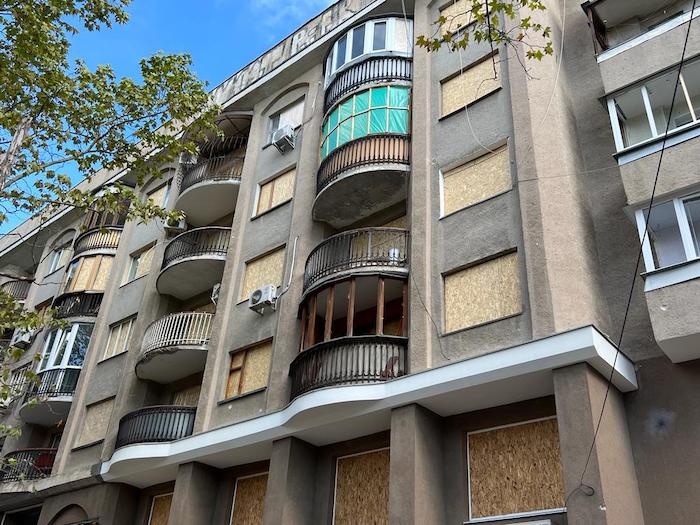
Another problem we faced was closing all the windows broken after the Russian bombardments. We got about 100,000 square meters of plywood to close the windows. The work is now completed. We have also repaired all the roofs or prepared them to be repaired in spring.
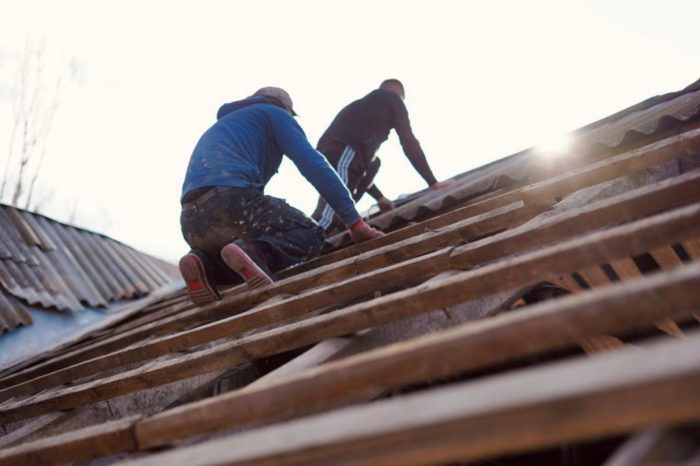
Economy in survival mode
We live mostly using the city tax money for the needs of the military and less so for the civilian community. Facilities and enterprises that worked in Mykolaiv before the full-scale invasion had to close due to the war so there is less tax money coming in.
There is a law, however, that does not allow us to spend our tax money on capital expenses. We do not build new roads, schools, etc, so we don’t need funds for that. We only use the money to support the critical infrastructure and make it possible for the city to survive, not to develop it.
Neither agricultural facilities nor ship-building facilities work at the moment. Some products are being transported to Odesa by trucks and shipped from there using export corridors. It is still not safe to restore the destroyed and damaged industrial facilities as the Russians but they are still within range of S-300 missiles.
Yet, the city lives: pensioners get paid, and markets and supermarkets work just like before the war. There is a lack of jobs, and we need to recover our production and plants and we will do it as soon as we push the Russians to Crimea, at least.
https://twitter.com/EuromaidanPress/status/1601946226072723457
Now the world understands that Ukrainians are totally different from Russians
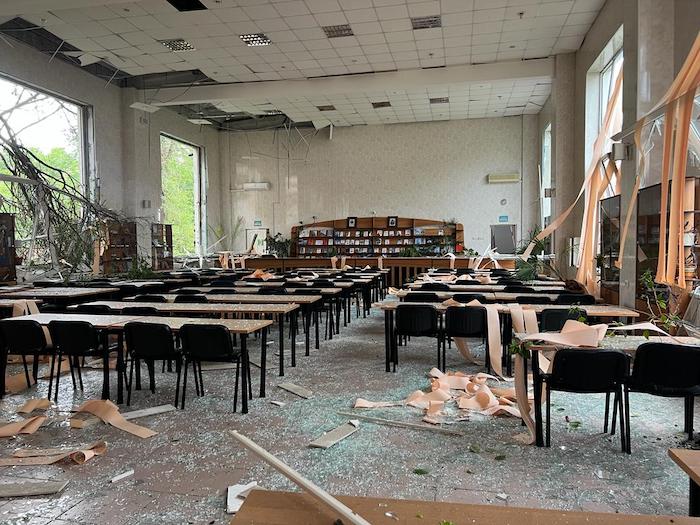
Three of Mykolaiv’s universities were attacked twice, with S-300 missiles. Russian social platform Telegram channels reported that they hit the educational institutions with the military personnel present on site. It is not true as we have visited the sites after each bombardment. There were no military vehicles and no bodies under the rubble. These were not military objects and we have photo and video evidence to prove it.
Now that the Russians have started to bombard our critical infrastructure, energy system, and electricity stations, we can clearly see that this is genocide of the Ukrainian people. They just want to kill Ukrainian people and they don’t hide it. They want to attack all spheres of life and do it in any way possible: by rockets, to freeze them, to leave them without food.
Our theaters still work, and there are makeshift, small stages built in bomb shelters. Mykolaiv residents go to the performances.
The Russians make us stronger: “What doesn’t kill us makes us stronger.”
Putin, in fact, did a lot of things to unite Ukrainians more, make our people stronger, and separate us from Russia. Whatever he planned worked in the opposite way.
Now, the world understands that Ukrainians are totally different from Russians. The world understands that Russia is a weak country. They claimed that they had the second strongest army in the world but anyone can see now that they are no warriors but people who steal washing and vending machines, toilets, and towels from Ukraine. They look like they don’t have a home of their own but they have decided to attack another country.
They have made us stronger, for sure, and, for sure, they helped us to cleanse the Ukrainian culture from the Russian culture. Someone has put it really well, “If they are so cultured and educated, why do they act and look like barbarians, killing, raping, and destroying?” It simply means their culture didn’t work and we can live without it.
We now understand what is the price of independence. The people of Ukraine will remember it for a long time, for years to come.
The role of a person in history
I don’t think too much of my role as a mayor of one of Ukraine’s most important cities. I don’t have time to think about why it happened or how; we just get to it and decide what we can do.
During the first days of the war, it was the fortification of the city of Mykolaiv. After that, we helped the Ukrainian army to get the abandoned Russian tanks to the city of Mykolaiv and repair them. We just continued on with our business without thinking about what would happen next. We just do what we need to do.
I don’t think too much about how it happened or how I can live with it or if I will stay in history. No one will stay in history. Well, Putin will—as an idiot who has started this war. People won’t remember the local authorities or the heroic rescuers who work getting people from under the rubble. Moreover, it’s human nature to forget good things. If you do 99 good things and one bad thing, they will remember that one bad thing.
We understand that we have a frontline here, in the city of Mykolaiv, and someone has to do it and we will do it till Victory. In the early days of the war, my team and I made a decision: if Russians seize Mykolaiv, we will fight them, as part of our army.
We just do what we have to do. I am sure that anyone in my place would do the same, the same way.
Related:
- Russia deliberately blew up Ukraine water supply to Mykolaiv – BBC
- First train since Feb 24 arrived in south-Ukrainian Mykolaiv City
- Sunflower oil on Mykolaiv streets, fire erupts after Russian drone strike on oil tank

